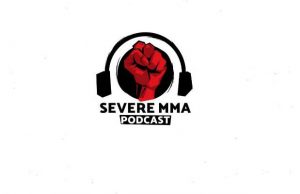

After initially showing apparent abnormalities on a random USADA drug test earlier this year, UFC middleweight Yoel Romero has today been given a 6-month suspension after coming to an agreement with USADA. He will be free to fight on July 12th.
A former Olympic wrestling silver medallist for Cuba, Romero transitioned to MMA in 2010 after initially defecting to Germany.
A spell in Strikeforce, along with a move to American top team, gave Romero some notoriety stateside and when he moved to the UFC he quickly rose through the ranks.
Wins over Brad Tavares, Tim Kennedy and Lyoto Machida had Romero nearing a title shot while a won over Jacare Souza in December made him the favourite to face Luke Rockhold for the title.
Unfortunately, the USADA mishap scuppered that and Rockhold will now rematch Chris Weidman for the title. But, with Romero now soon to be free to fight, he could be the next man in line.
The full statement reads as follows;
“USADA announced today that UFC athlete, Yoel Romero, of Miami, Fla., has accepted a 6-month sanction for an anti-doping policy violation after testing positive for a prohibited substance from a contaminated supplement.
Romero, 38, tested positive for Ibutamoren following an out-of-competition test conducted on December 16, 2015 in Miami, Florida. Ibutamoren is a Growth Hormone Secretagogue and a prohibited substance in the class of Peptide Hormones, Growth Factors, Related Substances and Mimetics under the UFC Anti-Doping Policy, which has adopted the World Anti-Doping Agency (WADA) Prohibited List.
Following notification of his positive test, Romero provided USADA with access to the dietary supplement products he was using at the time of the relevant sample collection. Although Ibutamoren was not listed on any of the supplement labels, preliminary testing conducted on one of the products indicated that it contained the prohibited substance. The presence of an undisclosed prohibited substance in a product is regarded as contamination.
At USADA’s request, the WADA-accredited laboratory in Salt Lake City, Utah, independently obtained and analyzed the contents of an unopened container of the supplement in question. That testing conclusively confirmed that a supplement Romero used was contaminated with Ibutamoren. The product has since been added to the list of high risk supplements maintained on USADA’s online dietary supplement safety education and awareness resource – Supplement 411 (www.supplement411.org).
Under the UFC Anti-Doping Policy, as well as the World Anti-Doping Code, the determination that an athlete’s positive test was caused by a contaminated product may result in a reduced sanction. The sanction for a doping offense resulting from the use of a contaminated product ranges from a reprimand and no period of ineligibility, at a minimum, to a two-year period of ineligibility, at a maximum.
Romero’s period of ineligibility began on January 12, 2016, the date on which he was provisionally suspended from competition. Because USADA was able to confirm, based on a negative fight night test result, that Romero’s use of the contaminated supplement began after he competed at UFC 194 on December 12, 2015, his competitive results from that event were not disqualified.
”This case clearly demonstrates some of the dangers inherent to supplement use,” said USADA’s Special Advisor on Drugs and Supplements, Dr. Amy Eichner. “When considering whether to incorporate supplements into a training plan, it is vitally important that athletes exercise the upmost care in order to avoid making a decision that could endanger their eligibility, reputation or general health and wellness.”
USADA conducts the year-round, independent anti-doping program for all UFC athletes. USADA is an independent, non-profit, non-governmental agency whose sole mission is to preserve the integrity of competition, inspire true sport, and protect the rights of clean athletes. In an effort to aid UFC athletes, as well as their support team members, in understanding the rules applicable to them, USADA provides comprehensive instruction on the UFC Anti-Doping Program website (www.ufc.usada.org) regarding the testing process and prohibited substances, how to obtain permission to use a necessary medication, and the risks and dangers of taking supplements as well as performance-enhancing and recreational drugs. In addition, the agency manages a drug reference hotline, Drug Reference Online (www.ufc.globaldro.com), conducts educational sessions, and proactively distributes a multitude of educational materials, such as the Prohibited List, easy-reference wallet cards, and periodic athlete alerts.”



